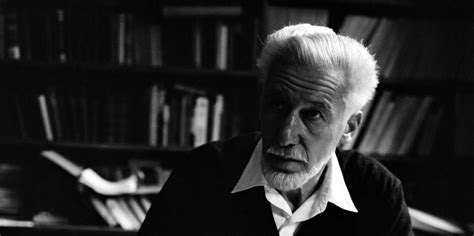A Quote by Bertrand de Jouvenel
Barbarian invasions would be superfluous: We are our own Huns.
Related Quotes
Because Roman civilization perished through barbarian invasions, we are perhaps too much inclined to think that that is the only way a civilization can die. If the lights that guide us ever go out, they will fade little by little, as if of their own accord.... We therefore should not console ourselves by thinking that the barbarians are still a long way off. Some peoples may let the torch be snatched from their hands, but others stamp it out themselves.
The necessity of reciprocal checks in the exercise of political power, by dividing and distributing it into different depositories, and constituting each the guardian of the public weal against invasions by the others, has been evinced by experiments ancient and modern, some of them in our country and under our own eyes.
It is characteristic of the barbarian ... to insist upon seeing a thing "as it is." The desire testifies that he has nothing in himself with which to spiritualize it; the relation is one of thing to thing without the intercession of the imagination. Impatient of the veiling with which the man of higher type gives the world imaginative meaning, the barbarian and the Philistine, who is the barbarian living amid culture, demands the access of immediacy. Where the former wishes representation, the latter insists upon starkness of materiality, suspecting rightly that forms will mean restraint.
The great intellectual tradition that comes down to us from the past was never interrupted or lost through such trifles as the sack of Rome, the triumph of Attila, or all the barbarian invasions of the Dark Ages. It was lost after the introduction of printing, the discovery of America, the founding of the Royal Society, and all the enlightenment of the Renaissance and the modern world. It was there, if anywhere, that there was lost or impatiently snapped the long thin delicate thread that had descended from distant antiquity; the thread of that unusual human hobby: the habit of thinking.
The proper aim of giving is to put the recipient in a state where he no longer needs our gifts...Thus a heavy task is laid upon Gift-love. It must work toward its own abdication. We must aim at making ourselves superfluous. The hour when we can say 'They need me no longer' should be our reward. But the instinct, simply in its own nature, has no power to fulfill this law.
Everyone aimed at security: no one accepted responsibility. What was plainly lacking, long before the barbarian invasions had done their work, long before economic dislocations became serious, was inner go. Rome’s life was now an imitation of life: a mere holding on. Security was the watchword – as if life knew any other stability than through constant change, or any form of security except through a constant willingness to take risks








































